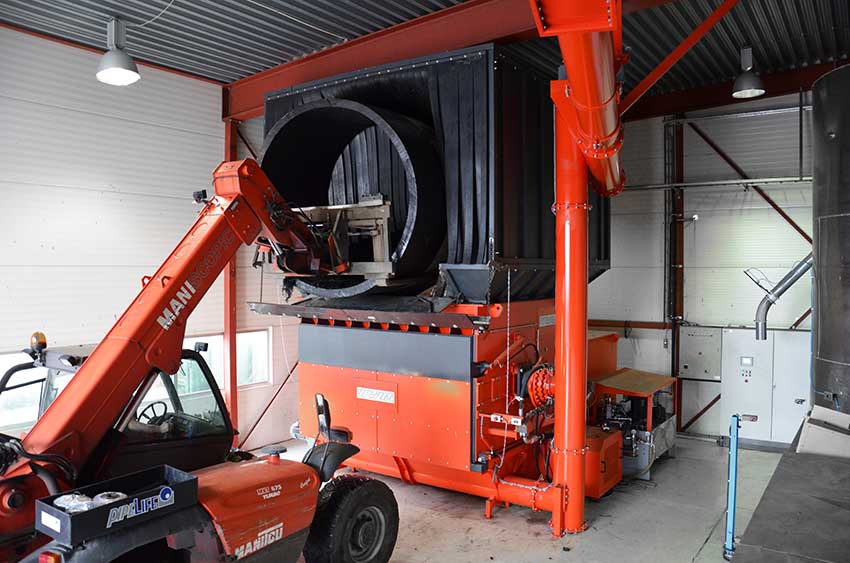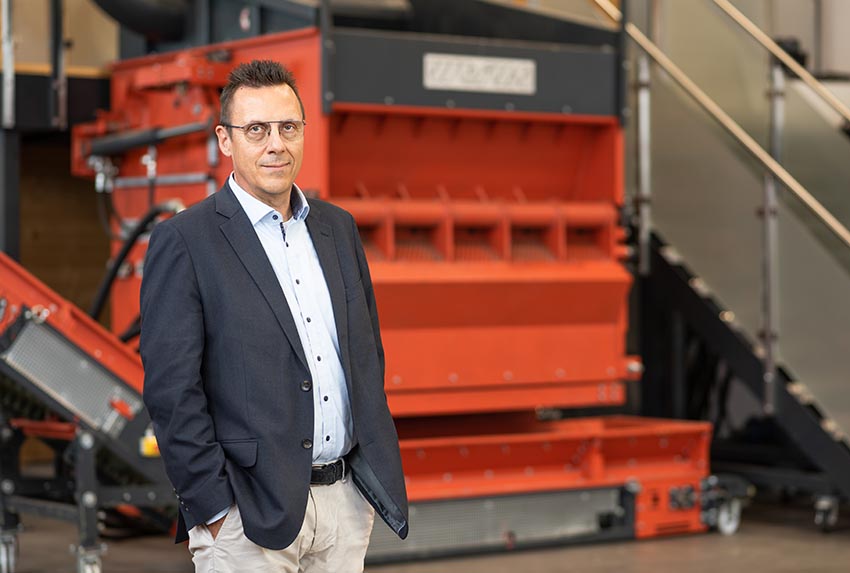WEIMA has been manufacturing robust shredders and briquetting presses for the disposal and processing of all types of waste for more than four decades. WEIMA’s machines include single-shaft shredders, four-shaft shredders, cutting mills, briquette presses, packaging and drainage presses. The popular blood orange machines are used in the wood, plastics, paper, packaging, metal and waste-to-energy industries.
Made in Germany. Built for the world.
Shredders, briquette and drainage presses from WEIMA are exclusively made in Germany and come from production plants in Saxony-Anhalt and Baden-Wuerttemberg. Every year, more than 300 employees work on around 1,200 customer solutions from around the globe. The company has long-standing sales and service locations in the USA, Poland, India and China. More than 80 representatives supplement this global presence.
Interview with Andreas Mack, Managing Director at WEIMA.
Easy Engineering: What industries do you think will grow in 2021?
Andreas Mack: The industries that have survived through the pandemic will see an increase in spending as our social lives resume post-lockdown. Prices for industrial products have increased due to limited availability of raw materials an over-utilization. Human behavior has changed and digital processing has become more dominant. International travel will change as well. Business is done between people; personal encounters will continue to be essential in the future. Humanity has some catching up to do. Overall, we shall not forget that industries that were suffering prior to COVID-19 face further decline.
E.E: What solutions do you provide for these industries?
A.M: The desire for more sustainability remains a driving force of future economic development. Even in times of a global pandemic, the reuse [of materials] has remained desirable in today’s society. WEIMA decided to enter the recycling business 40 years ago and continues to benefit from this trend. WEIMA provides turnkey and custom shredding and compacting options for various material flows.

E.E: Tell us about product innovations and their impact on customers?
A.M: The economic and ecological pressure on consumers and producers releases forces of innovation. Outdated industries are being revitalized by a young, well-educated, motivated workforce who prioritize the well-being of the environment. The mix of experience and curiosity helps the innovative creation process get off the ground. The worldwide focus now is to encourage new ideas at the start-up level and in well-established industries. These ideas can become attractive products that benefit the consumer, the environment, and stakeholders long-term.
E.E: What industries do you think will grow in the future?
A.M: Industries that place a focus on sustainability will thrive where those who do not will fail. The service sector will grow globally due to the ongoing modernization of internet-based services. Supply chain logistics will be enhanced. The recycling industry will prosper, outliving industries like mining. Recycling will transform all sorts of waste products into raw materials, adding value to future industries.
E.E: What solutions do you bring for these industries?
A.M: WEIMA has delivered products and services to the recycling industry for a long time. We have consistently developed a variety of solutions for size reduction, as this is often the first step in the material reclaim process. It is because of this that our highly-valued customers and prospects are able to benefit from WEIMA’s collective research and development. We focus on proactive solutions to waste stream challenges from the start.
E.E: How will you adapt your solutions for the future?
A.M: The inclusion of artificial intelligence will have a major impact on the solutions we are able to provide. In the near future, WEIMA customers will have control over their machine’s parameters using advanced, application-specific algorithms. In order to reuse production scrap, certain infrastructure must be in place. The requirements for integrating individual machines into holistic production processes are increasing. WEIMA will be able to provide corresponding interfaces to meet these demands.
E.E: How will these solutions benefit users?
A.M: At the end of the day, companies prioritize return on investment. By optimizing the machine to the customer’s needs, they can plan for preventative maintenance, reducing unexpected down time. Customers also save on energy costs and prolong the life of the machine while being environmentally conscious.
E.E: The industrial internet of things is seen as the future. What solutions do you provide and how does this impact you?
A.M: By combining classic mechanical engineering with the latest technology, WEIMA provides our clients with information relevant to their requirements. We see ourselves as missionaries of an up-and-coming faith of sorts—sustainability is the key to a good future for our descendants.
E.E: How do you think 5G will improve industrial processes?
A.M: 5G creates the platform and the framework for process digitalization. The up-front costs for development are a temporary disadvantage. However, WEIMA continues to have confidence in the innovative potential of global business enterprises.

